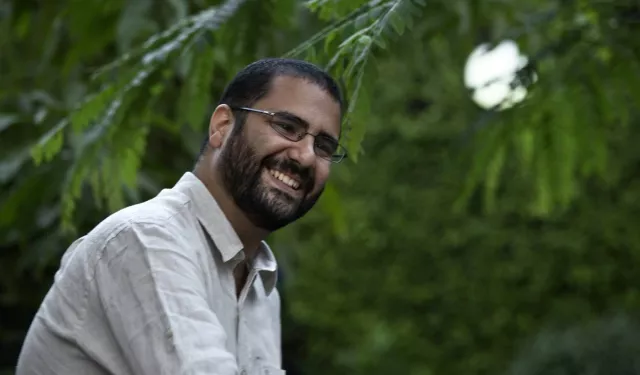Egypt’s state-affiliated National Council for Human Rights (NCHR) has issued a rare public appeal to President Abdel Fattah El-Sisi, requesting a presidential pardon for seven detainees—including high-profile political prisoner Alaa Abdel Fattah—citing “humanitarian grounds” and the emotional toll on families.
In a statement released Monday, the council described its request as a “purely paternal humanitarian appeal” aimed at reuniting families facing “exceptional personal and health circumstances.”
“From our constitutional and legal mandate—and based on Your Excellency’s deeply paternal approach to cases involving humanitarian dimensions—we respectfully urge the exercise of your constitutional right to grant clemency to a number of individuals whose families have submitted urgent pleas for release, citing their suffering in the absence of their loved ones,” the statement reads.
The council named the seven prisoners for whom it is seeking clemency: Alaa Ahmed Seif El-Islam Abdel Fattah, Said Magli El-Daw Aliwa, Karam Abdel-Samei Ismail El-Saadani, Walaa Gamal Saad Mohamed, Mohamed Awad Abdo Mohamed, Mohamed Abdel-Khaleq Abdel-Aziz Abdel-Latif, and Mansour Abdel-Gaber Ali Abdel-Razek.
The council emphasized that presidential clemency represents not only a constitutional authority but also a vital expression of state compassion. The move, it said, could profoundly affect families, especially vulnerable groups such as “children, persons with disabilities, women, and the elderly.”
“This gesture,” the council added, “would offer a powerful psychological and social boost to families in distress.”
Alaa was arrested on Sept. 28, 2019, and charged with “spreading false news,” “misusing social media,” and “joining a terrorist group with knowledge of its aims,” among other accusations. After two years in pretrial detention, he was sentenced to five years in prison in December 2021 by an Emergency State Security Court.
Human rights lawyer Khaled Ali previously told Al Manassa that Abdel Fattah was due for release at the end of September 2024. However, authorities recalculated his sentence starting from Jan. 3, 2022—the date of military ratification—rather than from his 2019 arrest, due to the nature of the court ruling.
The appeal comes amid growing concern for Abdel Fattah’s wellbeing. On Sunday, his mother, academic Laila Soueif, wrote on Facebook that her son had resumed a full hunger strike on Sept. 1, consuming only water and refusing even rehydration salts.
“He’s furious,” she wrote. “Since his name was removed from the terrorism list, National Security spoke with him in prison and told him he’d be released in a few days. It’s driving him mad. It’s been nearly a year since he completed his sentence, yet he remains in prison.”
Abdel Fattah had ended a previous hunger strike last month, which he began in March in solidarity with his mother, who was on hunger strike at the time due to the delay in his release.
